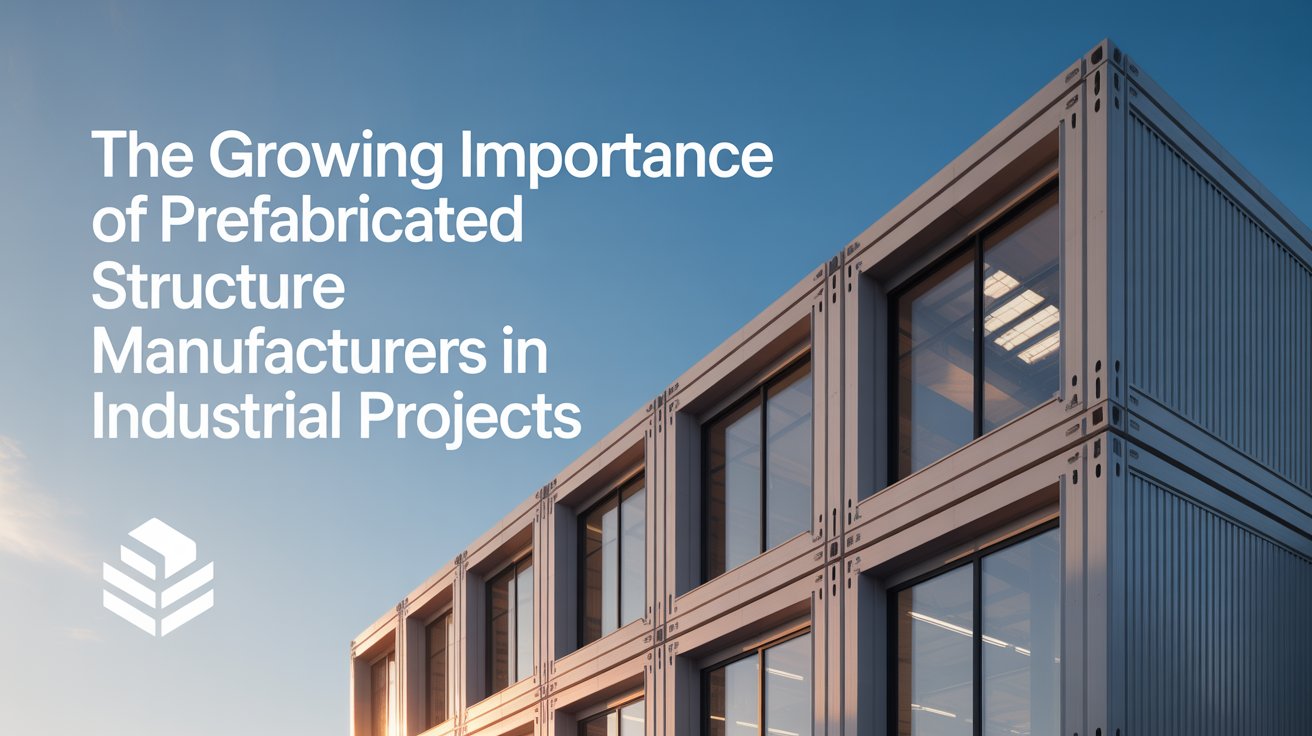In recent years, industrial construction has undergone a major transformation. Traditional brick-and-mortar methods, while reliable, often demand heavy investments of time, labor, and cost. To meet the fast-evolving demands of industries such as manufacturing, logistics, energy, and warehousing, companies are now looking for alternatives that combine speed, efficiency, and durability. This is where prefabricated structure manufacturers have stepped in as key players, redefining the way industrial projects are designed, built, and executed.
From modular factories to large-scale warehouses, prefabrication is no longer just an option; it is becoming the go-to solution for industries aiming to remain competitive. Let’s explore why prefabricated structure manufacturers are growing in importance and how their solutions are shaping the future of industrial construction.
1. Speed of Construction
Time is money in the industrial sector. Whether it’s setting up a warehouse for e-commerce, a cold storage facility for food processing, or a workshop for manufacturing, companies cannot afford long construction delays. Prefabricated structures offer a major advantage in terms of speed.
Manufacturers pre-build structural components — walls, trusses, panels, and roofing systems — in controlled factory environments. Once transported to the site, these components are quickly assembled, cutting down project timelines drastically. In many cases, projects that might take a year through conventional methods can be completed in just a few months with prefabrication.
For industries facing tight deadlines or those needing immediate scalability, this fast turnaround has become a game-changer.
2. Cost-Effective Solutions
Industrial projects often require large-scale investment, and every cost-saving measure can have a significant impact on profitability. Prefabricated structure manufacturers help reduce costs in multiple ways:
-
Reduced Labor Costs: Since most components are manufactured off-site, fewer skilled workers are needed on-site for construction.
-
Efficient Material Usage: Factory production ensures minimal waste, as materials are cut precisely and reused wherever possible.
-
Shorter Project Timelines: Faster construction means lower labor and operational costs, as well as quicker returns on investment.
For businesses working within strict budgets, prefabricated structures provide a way to achieve long-term savings without compromising quality.
3. Quality and Precision Engineering
Industrial projects must meet strict safety and performance standards. Prefabricated structure manufacturers use advanced technology, such as computer-aided design (CAD) and automated fabrication, to ensure precision in every component.
Since these parts are built in controlled factory conditions, they are less vulnerable to weather disruptions, human error, or inconsistent quality that often occurs in on-site construction. The result is a structure that not only meets but often exceeds industry benchmarks for strength, durability, and reliability.
4. Flexibility and Scalability
Industries evolve quickly. A business that starts with a modest production facility may need to expand rapidly to meet growing demand. Prefabricated structures provide unmatched flexibility in such scenarios.
Manufacturers design these structures to be modular, meaning they can be expanded, modified, or even relocated with relative ease. This adaptability allows companies to adjust to market changes, scale operations, or even shift locations without starting construction from scratch.
For industrial clients, this flexibility translates into business continuity and reduced risks during expansion or relocation.
5. Sustainability and Environmental Benefits
Sustainability is no longer just a buzzword — it is an essential part of modern industrial operations. Many industries are under pressure to adopt greener practices, not only to meet regulatory requirements but also to appeal to environmentally conscious stakeholders and customers.
Prefabricated structure manufacturers contribute to sustainability in several ways:
-
Reduced Waste: Precise production methods minimize material wastage.
-
Energy Efficiency: Prefabricated buildings can be designed with advanced insulation, ventilation, and energy-saving systems.
-
Lower Carbon Footprint: Faster construction reduces on-site energy consumption and transportation needs.
For companies aiming to align with ESG (Environmental, Social, and Governance) goals, choosing prefabricated solutions helps demonstrate their commitment to sustainable business practices.
6. Meeting the Needs of Diverse Industrial Sectors
The versatility of prefabricated structures makes them suitable for a wide range of industrial sectors. Some examples include:
-
Logistics & Warehousing: Large, open-span structures for storage and distribution.
-
Manufacturing Units: Durable facilities that can house heavy machinery and equipment.
-
Energy & Utilities: Prefabricated power stations, substations, and control rooms.
-
Agriculture & Food Processing: Cold storage units, greenhouses, and packaging centers.
By tailoring their solutions to specific industry needs, prefabricated structure manufacturers have proven themselves indispensable across multiple domains.
7. The Future of Industrial Construction
As industries embrace digital transformation, construction is also moving toward smarter, technology-driven solutions. Many prefabricated structure manufacturers now integrate Building Information Modeling (BIM), IoT-enabled monitoring systems, and even renewable energy solutions into their projects.
This forward-thinking approach ensures that industrial facilities are not only functional but also future-ready, capable of adapting to automation, robotics, and evolving industry trends.
Conclusion
The growing reliance on prefabricated structure manufacturers in industrial projects is a clear sign that the construction industry is entering a new era. Their ability to deliver cost-effective, high-quality, flexible, and sustainable solutions has made them essential partners for businesses seeking rapid growth and efficiency.
For industrial stakeholders, working with the right prefabricated manufacturer is more than a construction choice — it is a strategic investment in the future of their operations. As industries continue to prioritize speed, sustainability, and scalability, prefabricated structures will only grow in importance, cementing their role as the backbone of modern industrial infrastructure.
